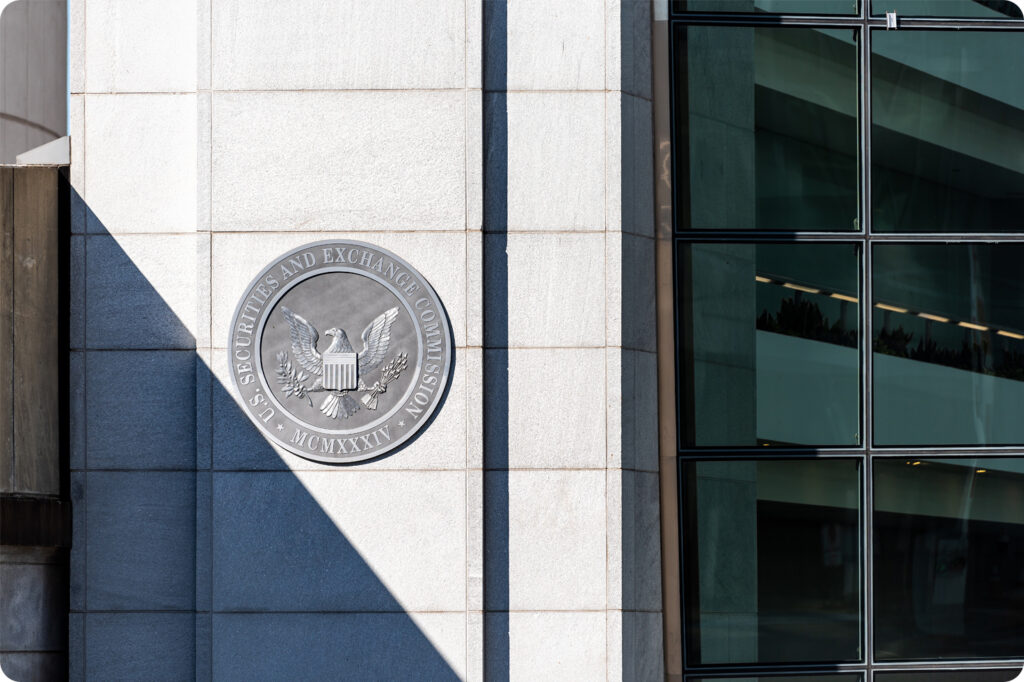The top five climate risk stories this week.
Want access to deeper insights and curated climate news? Request a demo of our solution today.
Republicans attack SEC climate risk rule

GOP lawmakers claim the US Securities and Exchange Commission (SEC) overstepped its authority by proposing a disclosure rule that would force public companies to report their climate risks and opportunities.
In a letter dated February 22, three senior Republicans from the House and Senate said the proposed rule “exceeds the SEC’s mission, expertise, and authority,” and will hurt the US economy “if finalized in any form.”
The lawmakers said that a 2022 Supreme Court ruling against the Environmental Protection Agency (EPA) shows federal agencies “must point to clear congressional authorization” for their actions. They claim Congress did not want the SEC to be a “determining body for climate policies” or an “arbiter of business strategies,” and therefore the agency should not have advanced the disclosure rule.
The letter includes questions to SEC chair Gary Gensler on the process and substance of the rule. One says the rule “raises First Amendment concerns” as “it would appear to compel speech” — which is unconstitutional according to certain legal doctrines — and asks what efforts the SEC has made to address these concerns. Another asks whether the SEC received or considered legal advice on its authority to promulgate the disclosure rule.
The SEC climate risk disclosure rule was proposed last March and is due to be finalized this April. The Wall Street Journal recently reported that the agency may water down some of the rule’s provisions to make it more resilient to expected legal challenges from Republican lawmakers and certain industry groups.
The Republican letter was signed by Patrick McHenry, chairman of the House Committee on Financial Services, Bill Huizenga, chairman of the panel’s subcommittee on oversight and investigations, and Tim Scott, ranking member on the Senate Committee on Banking, Housing, and Urban Affairs.
BNP Paribas faces historic climate lawsuit

Friends of the Earth France, Notre Affaire à Tous, and Oxfam France have filed a first-of-its-kind lawsuit against BNP Paribas, France’s largest bank, for its ongoing financial support of fossil fuels.
The lawsuit, filed at the Paris Judicial Court on Thursday, is based on the French duty of vigilance law, which requires multinationals to take action to protect human rights and the environment. The organizations are calling for the bank to stop financing the expansion of fossil fuel projects, which are the primary driver of climate change. BNP Paribas is Europe’s largest and the world’s fifth-largest fossil fuel expansion funder, according to data from advocacy group the Rainforest Action Network.
The three organizations gave BNP Paribas formal notice to comply with its due diligence obligations under French law on October 26, but the bank failed to meet the demands.
Lorette Philippot, a campaigner at Friends of the Earth France, said: “The urgent warning professed by the scientific community and the International Energy Agency has recently been reiterated through repeated statements from the United Nations: a bank cannot claim to be committed to net zero while supporting new oil and gas projects.”
In a press statement, BNP Paribas said it regretted the organizations’ choice to pursue litigation over ongoing dialogue and reiterated that it could not stop all fossil fuel financing immediately.
UK pensions watchdog cracks down on climate disclosures

The Pensions Regulator (TPR) is launching a new campaign to ensure UK pension trustees are meeting their climate and environmental, social, and governance (ESG) reporting obligations.
As part of the campaign, TPR is sending emails to defined benefit, defined contribution, and hybrid schemes explaining how it is scrutinizing submitted reports to make sure they comply with rules on ESG and climate disclosure.
TPR is also checking that trustees are publishing mandatory statements of investment principles (SIP) and implementation statements (IS), which detail the policies controlling how a scheme invests. This includes the consideration of financially material ESG and climate factors. Corporate trustees that fail to comply risk enforcement action, including fines of up to £50,000 (USD$59,800).
In addition, TPR says it will conduct a review of a cross-section of SIP and IS statements to highlight good practice in the summer.
“All savers deserve to be in well-governed schemes which protect their retirements by appropriately managing and reporting on ESG and climate related risks and opportunities,” said Nicola Parish, the executive director of frontline regulation at TPR. “Trustees who fail to comply risk us taking enforcement action against them and I expect to see an improvement in compliance levels.”
HSBC spotlights greenwashing risk

UK bank HSBC has labeled greenwashing as a major risk driver that could inflict “significant reputational damage” and hurt its revenues.
In its 2022 annual report, HSBC — which has around USD$3trn in assets — said greenwashing risks could manifest in three ways. First, if the firm fails to accurately and transparently communicate its net-zero progress. Second, if HSBC does not ensure its green and sustainable products are built and marketed appropriately. And third, if the company fails to monitor the credibility of its clients’ climate commitments and their use of its products for green activities.
“We consider greenwashing to be an important emerging risk that is likely to increase over time as we look to develop capabilities and products to achieve our net zero commitments, and work with our clients to help them transition to a low-carbon economy,” the report says.
HSBC notes it updated its climate risk management approach last year to cover all risk types in its internal risk taxonomy. The company also says it ramped up climate-related employee training and produced its first in-house climate scenario exercise. However, the bank also admits that “significant work” lies ahead before it can fully integrate climate into its risk management framework.
Climate hawk nominated as World Bank President

US President Joe Biden tapped Ajay Banga, an Indian-American businessman who has urged for greater climate action, to lead the World Bank.
The current World Bank president, David Malpass, announced his intention to step down in June. Malpass was branded a climate denier following an event last year, where he repeatedly failed to say whether he agrees that the burning of fossil fuels is driving climate change.
In contrast, Banga made waves as Mastercard’s CEO in 2020 when he called for companies, communities, and consumers to “find paths for collective action on climate change.” In his nomination statement, President Biden said Banga “has critical experience mobilizing public-private resources to tackle the most urgent challenges of our time, including climate change.”
Banga currently serves as vice chairman at General Atlantic, a US private equity firm. Climate change think tank E3G welcomed his nomination. Sonia Dunlop, public banks lead at the organization, said: “Banga will be a fresh pair of hands at the wheel of what we hope will be a greener, bigger, transformational and reformed World Bank capable of leading a global response to global challenges.”

